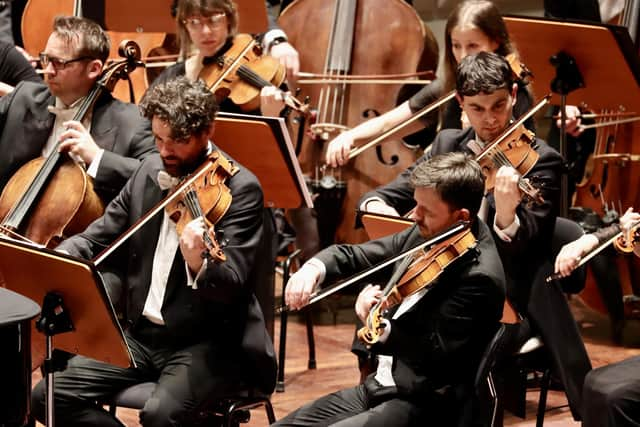Music review: RSNO & Junping Qian, Glasgow Royal Concert Hall
RSNO & Junping Qian, Glasgow Royal Concert Hall ***
To German audiences encountering Richard Strauss’s new-fangled “symphonic fantasy” Aus Italien in the 1880s, their view of a composer not yet famous for his later supercharged tone poems must have been one of mild bemusement. What were these anarchic titbits peaking through the safety blanket of prevailing influences, Strauss at this point embracing the solidity of conservative Brahms tinged with flecks of pictorial, storytelling Liszt?
For today’s listeners, it’s nigh-on impossible to appreciate this probing programmatic prototype without registering pre-echoes of, say, Till Eulenspiegel or the Alpine Symphony and the retrospective thrills these induce. Wednesday’s performance, a stirring climax to a matinee programme by the RSNO under its former assistant conductor Junping Qian, reaffirmed that broader context.
Advertisement
Hide AdAdvertisement
Hide Ad

Qian is an enthusiastic operator, so there was no lack of panache in bringing to life Strauss’ vivid reflections on Italy. The anticipatory sunrise of Auf der Campagna exuded warmth and openness; the inner movements, contrasting the awesomeness of Rome’s ruins with the more naturalistic sound scape of a Sorento beach, unleashed titillating instrumental delicacies; the finale, based on the popular song Funiculì, funiculà, romped home party-style.
If anything, Qian underplayed the sensuality of this music, mild hints of mischief that Strauss was tentatively toying with. But it was nonetheless a spirited retort to the concert’s bitty first half, in which the sophisticated tunefulness of Otto Nicolai’s rosy Overture from The Merry Wives of Windsor cast string music by Scots film composer Craig Armstrong into the shade.
In the Balcony Scene from Armstrong’s award-winning soundtrack to Baz Lurmann’s Romeo and Juliet, Qian short-changed its ultra-soft translucence; nor did he source a genuinely expressive solution to the outwardly bland Slow Movement for String Orchestra. In stark contrast, the cultured ebullience of Nicolai’s overture presented a rousing opener, colourfully played.